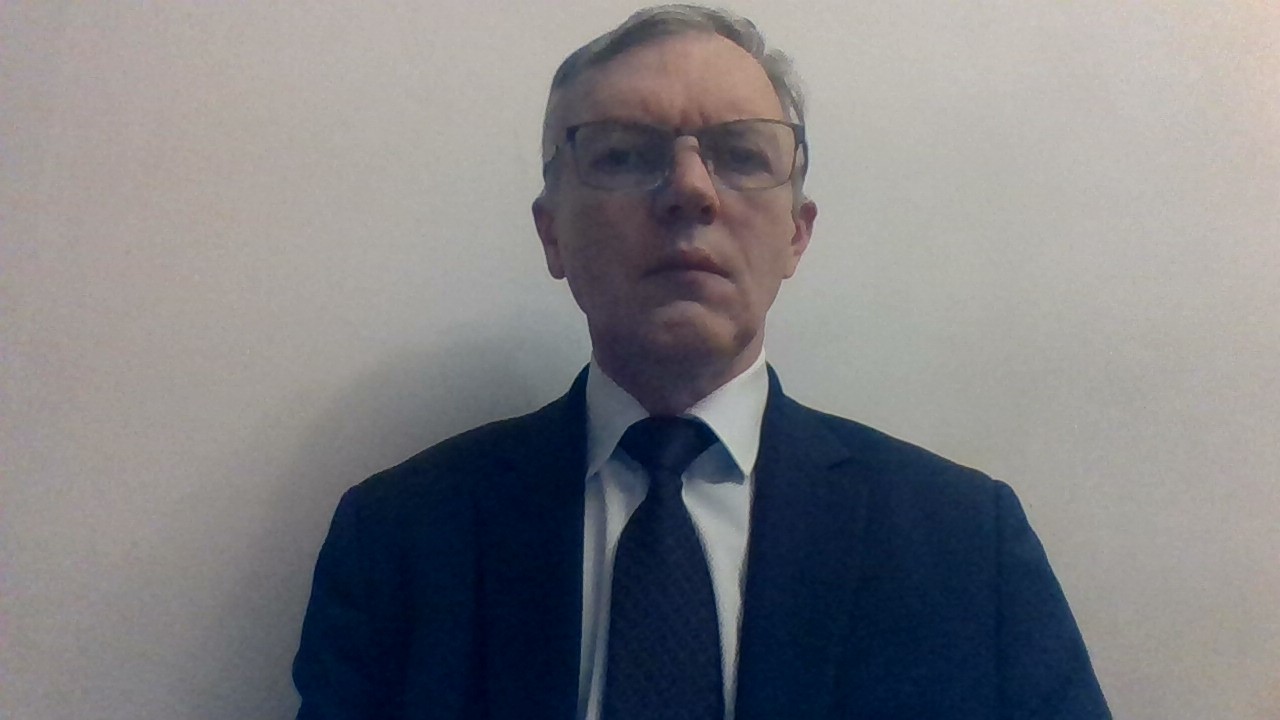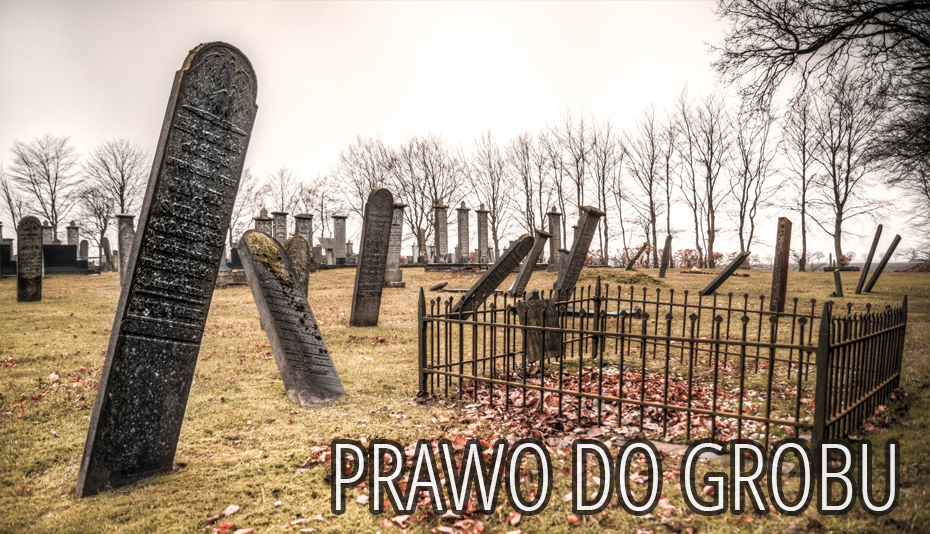-
Bohaterstwo, które podziwiał świat. „W..
POLSKA2 lata temu -
Neon24 – ruska V kolumna
POLSKA3 lata temu -
Nowe osoby w Zarządzie Amiblu
BIZNES3 lata temu -
Mechanizm warunkowości – krok ku Homo Eu..
POLSKA3 lata temu -
Wściekłe i wulgarne „Lemparcice” ..
POLSKA4 lata temu -
Rolnicze poparcie dla prezesa Elewarru – ..
NEWS4 lata temu
Procedury ponad prawdą

Czy wariografy są przydatne?
21 lutego w „Dzienniku Bałtyckim”, w dziale „Policyjny warsztat”, ukazał się artykuł pt. „Kłamstwa i prawdy o wariografie”. Już na wstępie autor informuje nas, że „przypisywana mu funkcja wykrywania kłamstw to… mit”.
Mit ten jest dodatkowo ugruntowany znanym amerykańskim teleturniejem „Moment prawdy”, w którym panie i panowie walczą o spore pieniądze na oczach swych rodzin oraz milionów widzów, w tym z Polski. Można zaobserwować, jaki pęd do kasy za wszelką cenę mają nie jacyś biedni obywatele z kraju trzeciego świata, ale dumni Amerykanie, którzy już za parę tysięcy dolców gotowi są na sprzedaż swoich największych tajemnic (zdrada, opinia o szefie, rozmaite poglądy i ideały).
Żenada, ale wracając do tematu – „Zapisy uzyskiwane przy użyciu wariografu i wnioski z nich płynące służą do naprowadzenia śledczych na kierunek, który powinni obrać podczas prowadzonego postępowania; w żadnym wypadku jednak urządzenie nie służy do stwierdzenia, czy dana osoba mówi prawdę, czy też kłamie .To mit, który wziął się z amerykańskich filmów”.
Otóż to, wcześniej wspomniany program wzmaga to mityczne przekonanie… Autor także stwierdza – „Wariografu nie oszukasz – między bajki należy włożyć udane próby oszukania wariografu i obsługujących go specjalistów”. Okazuje się, że lekkie odurzenie alkoholem lub lekami nic nie da, bowiem w takim przypadku delikwent nie jest dopuszczony do badania tym superurządzeniem. Zupełnie rewelacyjnie brzmi również konstatacja, że „nie jest również możliwie zafałszowanie wyników badań wytrenowaną siłą woli, bowiem wariograf obsługują doświadczeni operatorzy, którzy nie dają się nabrać na tego typu sztuczki”.
Okazuje się, że choć badania wariografem są skuteczne, to „trójmiejska policja nie stosuje ich w swoich śledztwach, bowiem badani muszą stawić się w laboratoriach, które są jedynie w Warszawie, Białymstoku, Bydgoszczy, Łodzi i Katowicach”.
Prawdopodobnie odległą lokalizacją i oszczędnościami kierował się Sąd Rejonowy w Gdańsku, który odrzucił wniosek o przebadanie mnie tym „inteligentnym cudem techniki”, kiedy to znana trójmiejska pisarka MCh. uznała w swoim dziwacznym zwidzie, że na portalu NaszaKlasa założyłem sobie dodatkowe dwa konta na zupełnie nieznane mi dane osobowe i z tych kont ją postponowałem. A była tego aż tak pewna, że nie tylko podmieniła mój podpis na tym portalu, czego zresztą nie ukrywa, ale będąc pewną, że jestem osobą w trzech postaciach, udała się do dwóch gdańskich sądów, aby uzyskać zadośćuczynienie 20 tys. zł, skasowanie moich artykułów omawiających jej wyczyny podczas dyskusji na wspomnianym portalu oraz uzyskać przeprosiny za krytykę jej jakże ważnej (tak obszernie wyjaśniała) osoby.
Jej prawnik, mec. K. Kolankiewicz, nie popisał się swoją wiedzą na temat pomówień a ponadto zlekceważył moje oświadczenie, że na NK miałem jedno jedyne konto na swoje dane, jednak dał wiarę swej mandantce i wniósł sprawę w jej imieniu przeciwko mnie, bagatelizując wspomniany fakt, że pisarka a doktorantka znamienitej uczelni (Uniwersytet Gdański) sfałszowała podpis, co jest szczególnym wyczynem w jej sytuacji, bowiem zajmuje się pisaniem książek o komputerowej… księgowości. Jak to mawiają – najciemniej bywa pod latarnią: strażacy podpalają, celnicy przemycają, posłowie podpisują listy obecności i wychodzą z obrad, a księgowi fałszują… podpisy.
Gdański sędzia, W. Midziak, również nie błysnął talentem w dziedzinie pomówień, bowiem fałszerstwo tej pani uznał za omyłkę, otwierając tym błyskotliwym spostrzeżeniem nowy rozdział w kryminalistyce, zaś mój artykuł dotyczący wymyślonego i anonimowego (sic!) pisarza, który nadużywał alkoholu, uznał za zniesławiający… powódkę i – nawiązując do tego specjalistycznego określenia oraz z okazji przedświątecznego czasu i takowegoż nastroju – wydał 18 grudnia 2009 całkowicie niezrozumiały wyrok skazujący w sprawie cywilnej IC692/09, przy czym ów świetny prawnik, w dobie internetu oraz poczty, czyli zasypywania mnie dziesiątkami sądowych pism, nie wysłał najważniejszego: nie poinformował ani o planowanej dacie ogłoszenia tego (jak się to okazuje) bezprecedensowego chłamu, ani o jego wydaniu, co uniemożliwiło mi wniesienie apelacji.
O wyroku dowiedziałem się w kwietniu 2010 podczas drugiego procesu (tym razem karnego) w Sądzie Rejonowym w Gdańsku, kiedy to mec. Kolankiewicz na korytarzu ostentacyjnie pokazał mi wyrok tuż przed inauguracyjną rozprawą (VIIIK155/10). Po pierwszym wygranym procesie cywilnym, owa szlachetna para postanowiła także powalczyć w sprawie karnej, zatem otrzymałem status… oskarżonego.
Tym razem bywałem na wszystkich rozprawach (na procesie obrządku cywilnego nie byłem ani razu, bowiem miałem zawał, operację i pobyt w sanatorium oraz długotrwałe zwolnienie lekarskie, jednak czcigodny sędzia naszego przyjaznego Państwa nie uznawał nadsyłanych zwolnień wystawianych przez „zwykłych” lekarzy), zaś sędzia przekazała 4 moje artykuły (zgłoszone przez mecenasa) opisujące wyczyny pisarki (lub wydające się jej, że ją opisują) do biegłej specjalistki od pomówień i dziennikarstwa. Opinia była przygniatająca – w żadnym artykule biegła nie dopatrzyła się jakiegokolwiek pomówienia, zatem pisarka proces przegrała. Skandal w wykonaniu Sądu Okręgowego w Gdańsku został już niejednokrotnie opisany, ale ani prezes tego sądu, Ryszard Milewski, ani żadna inna instytucja Temidy nie zainteresowała się tym popapranym procesem, z pisarką w roli fałszerki i pomówczyni, bowiem… wyrok uprawomocnił się (brak informacji o wydaniu wyroku uniemożliwił wniesienie apelacji – czy jeszcze coś w Polsce może zadziwić?).
Pomimo opinii biegłej przydatnej w drugim procesie, Temidzie jakoś nie przychodzi do głowy, aby tę samą opinię wykorzystać podczas rewizji pierwszego procesu, bowiem wyrok jest prawomocny, a to u nas rzecz święta – polska (i pewnie nie tylko) Temida nie tyle dba o prawdę, lecz o procedury, zatem jeśli dostaniesz wyrok, choćby mniej lub bardziej idiotyczny, to musi być wykonany, bo jest niewzruszalny, zatem wyrok z pierwszego procesu nadal wisi nade mną; machina naszej jakże sprawiedliwej Temidy jest powolna, lecz proceduralnie konsekwentna – jeśli nie przeproszę pisarki i nie skasuję moich artykułów z internetu, to grożą mi grzywny nawet do… 100 tys. zł.
Zatem proponuję sympatycznej a płodnej (wiele pozycji książkowych) pisarce, młodemu a ambitnemu mecenasowi oraz niezawisłemu a świetnemu sędziemu (od pierwszego wyroku), aby zaakceptowali wniosek o zbadanie wariografem faceta, którego uznali za posiadacza aż trzech kont na NK. Cała trójka – oraz prezes, czyli szef sędziego – to przecież szlachetni obywatele, którzy wyżej cenią prawdę, niż omyłkowe (jak opisane fałszerstwo) zwycięstwo, a skoro są pewni swoich racji, to przecież niczym nie ryzykują – jeśli wariograf wykaże moje kłamstwo, to przecież poniosę wszelkie konsekwencje tego czynu a dodatkowo się skompromituję.
Co ciekawe, admin portalu NK posiada historię logowań przez osoby uznane przez pisarkę oraz Temidę za mnie i wyraził zdziwienie, że żadna z instytucji nie poprosiła o jej przekazanie. Niestety, admin nie może przekazać tych danych osobie prywatnej, choć wielce zainteresowanej, ale może to uczynić wobec instytucji powołanym do dochodzenia prawdy, choć tutaj całkowicie niezainteresowanym jej poznaniem…
Niestety, te instytucje całkowicie zawiodły – założyły błędny przebieg wydarzeń, uparły się, że wykreowana przez nie rzeczywistość jest prawdziwa i nie mają zamiaru zmienić swego przekonania…
Jeśli badanie wariografem wykaże, że miałem te konta, to przeproszę pisarkę i zapłacę za badania. Jeśli jednak okaże się, że nie jestem jednocześnie p. AZ oraz p. JK, to pisarka przeprosi mnie za zniesławienie, przeprosi za fałszerstwo mojego podpisu, publicznie wyjaśni motywy swojej pomyłki i sądowego pieniactwa, zwróci mi wszystkie opłaty zawinszowane przez Temidę oraz poniesie koszty badania wariografem. Mecenas przeprosi mnie za wystosowanie w kwietniu 2009 ‘Ostatecznego przedsądowego wezwania’ do mnie po zamieszczeniu moich tekstów w internecie na przełomie stycznia i lutego 2009, które nie kwalifikowały się do wystosowania tego pisma, bowiem nie naruszały art. 212 kk, prawa prasowego oraz Konstytucji 1997. Niezawisły sędzia unieważni wyrok z 18 grudnia 2009 i przeprosi mnie za fatalne prowadzenie procesu (fałszerstwo uznał za omyłkę oraz przypowieść o wymyślonej postaci przypisał pisarce) i za niepoinformowanie mnie o jego wydaniu, natomiast prezes Sądu Okręgowego w Gdańsku wyrazi ubolewanie z powodu szeregu błędów popełnionych przez swego podwładnego a niezawisłego sędziego, tak w zakresie procedur sądowych niezgodnych z istotą przyjaznego państwa, jak w zakresie nieumiejętnego (błędnego!) interpretowania moich tekstów podczas rozpatrywania sprawy o pomówienie.
PS Nieumiejętność odróżniania prawdy od fałszu to już chyba narodowa przypadłość, bowiem ostatnio media kpią sobie z naszej Temidy, która miota się w sprawie fałszerstwa z podpisem, jednak jeszcze nie omawianej pisarki, lecz rzecznika rządu RP albo jego żony (niewłaściwą osobę skreślić). Jeszcze większe fałszerstwo mamy w solnej branży – przez wiele lat cwani rodacy fałszowali dokumenty dostarczając przemysłową sól do sektora żywnościowego jako sól spożywczą i nikt przez lata (a mamy najlepsze przepisy, świetne procedury, nowoczesne laboratoria oraz przekonanie, że żywność w Polsce jest doskonale kontrolowana!); podobno przewał dotyczy milionów kilogramów soli miesięcznie i nikt przez całe lata się nie zorientował!
Właśnie dzisiaj, poseł (świetny były bramkarz), w wywiadzie wyjawił: „Nie oglądam reprezentacji, bo w niej grają przestępcy”. Ostro zagrał, jak w podbramkowej sytuacji; jeśli jednak rzekł prawdę o naszych czołowych piłkarzach, to czy jakikolwiek sąd mógłby uznać tę wypowiedź za pomówienie? Czy konstatacja, że gdański sędzia rytuału cywilnego popełnił błąd, uznając fałszerstwo pisarki za omyłkę oraz że nie potrafił ze zrozumieniem wertować polskich tekstów, to zniesławienie? Jeśli tak, to niech poda mnie do sądu, byle nie do… swojego.
Mirosław Naleziński, Gdynia
Procedures over the truth
On 21st of February in "Police Shop" section the "Baltic Gazette” published an article "Lies and the truth about the polygraph". At the very outset, the author informs us that "the lie detection attributed to the device is…a myth".
This myth is also well-established thanks to the well-known American show "The Moment of Truth", during which ladies and gentlemen fight for big money in front of their families and millions of viewers, including Polish audience. It can be observed that it is not poor citizens of third world country but proud Americans who rush towards money and need just few thousand bucks to be ready to sell their biggest secrets (the betrayal, the opinion on their boss, a variety of ideas and ideals).
Embarrassing, but back to the topic – "The records obtained by using the polygraph and the conclusions drawn from them are used to direct the investigators during the proceedings, however, in any case, the device shall not be used to determine whether a person is telling the truth, or if is lying. It’s a myth that came from American movies".
That’s it, the program mentioned before promotes that mythical belief… The author also states – "you will not fool the polygraph – the stories of successful attempts to deceive the polygraph and running it specialists shall be put in between the fairytales". It turns out that a slight intoxication with alcohol or drugs will not work, because in this case, the culprit is not allowed to be studied with the super device. Quite a sensational observation is also the "falsification of research results with trained force of will is also impossible, because the polygraph is supported by experienced operators who cannot be fooled by such tricks".
It turns out that while polygraph tests are successful, the "Tri-City police does not use them in their investigations, because the subjects must turn in to the laboratories, which are only in Warsaw, Białystok, Bydgoszcz, Łódź and Katowice".
Probably a distant location and cost saving was what led Gdańsk District Court, which rejected my request for examination with this "intelligent miracle of technique", when the Tri-City known writer, MCh., found in her bizarre hallucinations that using NaszaKlasa portal I set up two additional accounts on completely unknown to me personal data, and used these personal accounts to despise her. She was so certain about it that not only she swapped my signature on this portal, which indeed she was not hiding, but being certain that I am a person in three forms, went to Gdansk courts to obtain redress of 20 thousand PLN, asked to have my articles discussing her exploits during the discussion on that portal deleted and to wanted an apology for criticizing her, how important (as she extensively explained) person.
Her lawyer, Mr K. Kolankiewicz, does not show his knowledge of libel and has also ignored my statement that I only had one account on my own data at NK portal, however, he believed his client and filed a lawsuit on her behalf against me, playing down the mentioned fact that the illustrious writer and PhD of a prestigious school (University of Gdańsk) has forged my signature, which is a special feat in her situation, as she is a writer of computer books on… accounting. As they say – The darkest place is under the candlestick: the firemen burn, customs smuggle, members of parliament sign the attendance lists and go out of proceedings, and accountants falsify… signatures.
Gdansk’s Judge, Mr. W. Midziak did not show off in the field of defamation either, since he has found the lady’s fraud a mistake, opening a new chapter in criminology by this brilliant observation, and has found my article on the imaginary and anonymous (sic!) alcohol abusing writer defamatory for the plaintiff, and – referring to the specialist term and on the occasion of the prefestive time and just such a mood – he issued a completely incomprehensible sentence in a civil case IC692/09 on December 18, 2009, while that brilliant lawyer, in the era of Internet and e-mail, that is filling me with dozens of court documents , did not send the most important one: he has not reported the planned publication date of this (as it turns out) unprecedented trash, or its release, which prevented me from bringing an appeal.
I found out about the judgment in April 2010 during the second trial (this time the criminal one) in the Regional Court in Gdansk, when Mr. Kolankiewicz ostentatiously showed me the judgment of the trial on the corridor just before the inaugural hearing (VIIIK155/10). After winning the civil proceedings, this noble couple decided to fight in a criminal case, so I received a status… of the accused.
This time I have been to all trials (I did not go to the civil ceremony even once, because I have been through a heart attack, surgery and stay in the sanatorium with a long-term sick leave, but the venerable judge of our friendly Country did not believe in sent exemptions issued by the "regular" doctors), and the judge sent four articles (reported by the attorney), describing the exploits of the writer (or the ones that seem to describe hers) to the skilled specialist in defamation and journalism. Feedback was overwhelming – the connoisseur found no libel in any of the articles, therefore, the writer lost the process. Scandal in the implementation of the Regional Court in Gdansk has been described often, yet neither the president of that court, Ryszard Milewski, nor any other institution of Themis has put interest in this loused process with the writer in the role of forger and accuser, because… the judgment became final (no information about the judgment prevented an appeal – is there anything else in Poland that may surprise?).
Despite the opinion of the connoisseur that was useful in the second trial, somehow Themis does not come up with an idea to use the same opinion in the review of the first trial, because the judgment is final and that is sanctity – Polish (and probably others as well) Themis does not care so much about the truth but it cares about the procedures, so if you get a judgment, even more or less idiotic, it must be done, because it is barred, so the judgment of the first process still hangs over me, the machine of our Themis is slow yet procedurally consistent – if I do not apologize to the writer and if I do not delete my articles from the Internet, I am threaten with a fine up to… 100 thousand PLN.
So I suggest the nice yet fertile (many books) writer, a young yet ambitious attorney, and an impartial yet superb judge (the first judgment), to accept the request to examine the guy who is who considered by them as the holder of up to three accounts at NK with a polygraph device. All three of them- including the president, the judge’s boss – are noble citizens who value the truth above the mistaken (forgery as described) victory, and if they are sure of their case, that have nothing to lose – if the polygraph proves my lie, I will bear all the consequences of this act and in addition I will discredit myself.
Interestingly, the admin of the NK site has a history of logins of persons considered by the writer and Themis as me and he was surprised that none of the institutions asked for it’s draft. Unfortunately, the admin can not transfer the data to a private person, no matter how interested, but can provide an institution set up to seek the truth with a copy, but these are completely uninterested in that knowledge…
Unfortunately, these institutions have failed completely – founded the wrong course of events, really stretched the point that the created reality is real and do not intend to change their beliefs…
If a polygraph examination reveals that I used to own these accounts, I will apologize to the writer and will pay for the tests. However, if it turns out that I’m not at the same time Mr. JK and Mrs. AZ, the writer will apologize to me for defaming me, apologize for the forgery of my signature, will publicly explain the reasons of her mistakes and court pettifogging, will return all fees taken by Themis, and bear the costs of polygraph examination. The attorney will apologize to me for launching in April 2009 the 'Pre-court final call’ after my texts being posted on the Internet in late January and early February of 2009, which did not qualify for issuing such a letter, because they did not infringe art. 212 of the Penal Code, Press Law and the Constitution of 1997. An independent judge will void the judgment of 18th of December 2009 and will apologize for the disastrous conduction of the process (considered fraud a mistake and has assigned the parable of an imaginary character to the writer) and for failing to notify me of its release, the president of the Regional Court in Gdansk, will express a regret at the number of errors committed by his subordinate and independent judge, both in terms of judicial procedures inconsistent with the essence of a friendly country, and the incompetent (incorrect!) interpretation of my publications when dealing with a case of libel.
PS The inability to distinguish truth and falsehood is probably the national condition, since the media mock at our Themis lately for she is tossing with a case of forgery of a signature, but not of the present writer, but the Polish government spokesman or his wife (delete the wrong person as appropriate). We have even greater fraud in the salt industry – for many years, the cunning fellow citizens falsified documents providing industrial salt to the food sector as a food salt, and for years no one (and we have the best regulations, good procedures, modern laboratories and the belief that food in Poland is very well controlled!) has put two and two together even though it affects millions of kilograms of salt per month!
Just today, a deputy (great ex goalkeeper), revealed in an interview: "I do not watch the representation, because criminals are playing in it". Carefully played, as a tight spot, but if he said the truth about our top footballers, would some court consider this statement as a slander? Is the assertion that the judge of the Gdańsk Civil Court had erred in finding fraud of writer a mistake and that it cannot browse Polish texts with understanding, is defamation? If so, he shall sue me to court, only not to… his own.
Translated by Aleksandra Wojtkiewicz

























